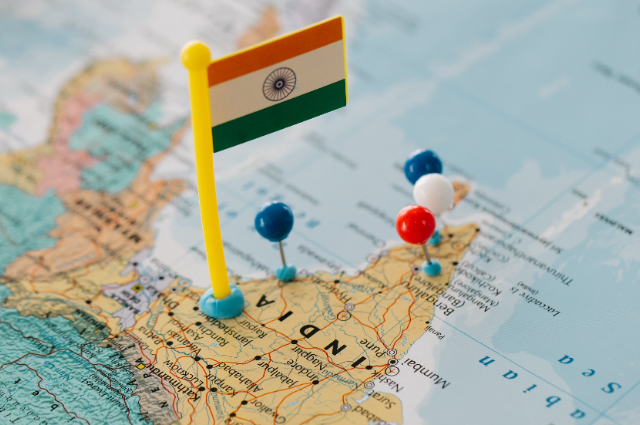
India has become a perfect spot for developed as well as developing countries for free-trade agreements (FTAs), and countries such as Oman, Peru, Europe, and the UK are looking forward to signing the pact, according to a report by economic think tank Global Trade Research Initiative (GTRI).
The recommending body said that a trade deal with India would let countries get access to the Indian market with less or no import duties on substantial trade, GTRI said in its report.
The agreement will also give their companies an advantage over getting access to the Indian market. Another reason that makes FTA an appealing option for other countries is the import India does from other countries without a trade agreement. The report highlighted that India does over 75% of imports from other countries without FTA. All countries of the world keep on banging on with this seemingly like a windfall gain.
"Everyone wants to do an FTA with India. Countries ranging from large economies like the US, Europe, Japan, and the UK to smaller ones like Oman, Peru, and Mauritius either already have or actively seeking an FTA with India. The main reason is India's high import duties, which make it difficult for these countries to access India's large and rapidly growing market," it said. The protectionism policy of India had somewhere upsetted the Core economies of the world.
The report also diminished the possibility of a rise in exports of India from FTAs under negotiations. The countries with which India is negotiating trade agreements already have low import duties.
"For example, the UK's duties are 4.1 percent, Canada's 3.3 percent, and the USA's 2.3 percent. In contrast, India's import duties are higher at 12.6 percent," GTRI Co-Founder Ajay Srivastava said.
A substantial share of imports from these nations is already happening at zero MFN (most favoured nation) duties, he said.
Canada's 70.8 percent of imports are already happening at zero MFN duty. The same is the case with Switzerland (61 percent), the US (58.7 percent), the UK (52 percent), EU (51.8 percent).
"In contrast, in India, only 6.1 percent of global imports are undertaken at zero MFN duty. Given this, India might not see a big increase in exports after these FTAs because these countries already have low or no import duties," Srivastava added.
The report stated that countries such as the UK and Canada could benefit more from the FTAs, as they will be able to sell their products in India without the high duties that it imposes on other nations.
To reduce the impact of FTA on local businesses, the report mentioned six steps the government can take while negotiating these deals. These steps include the creation of a common exclusion list for merchandise trade negotiations, and focusing on obtaining real market access on the ground.
Another suggestion focuses on sectoral agreements with poor and developing nations instead of trade deals involving goods, services, and investments.
Medium to high technology products constitute 70% of the global trade while 30% is traditional labour-intensive sectors. Developed countries charge zero or low import duties on most medium-to-high-tech goods and high duties on shirts and shoes manufactured by developing countries.
In the free-trade negotiations that India is involved in, it may end up giving up more than what it can gain.
India is re-directing its FTA strategy from East to West, targeting major world economies for FTAs in 2024-25. Notably, negotiations are underway with countries like the UK, USA, EU, Switzerland, Norway, and Russia. Switzerland and Norway are negotiating as part of the European Free Trade Association. This means by the end of 2024, India may have completed or nearing completion of an FTA with all major economies except China.
Gains for India from tariff reduction by FTAs are limited so it must increase demand through better quality and a wider range of products.
It must prioritise obtaining real market access on the ground and negotiate new subject areas like environment, labour, and digital trade carefully to avoid monetarism in the economy. the GTRI report said.
. . .
References:
- livemint.com
- financialexpress.com
- gtri.co.in
